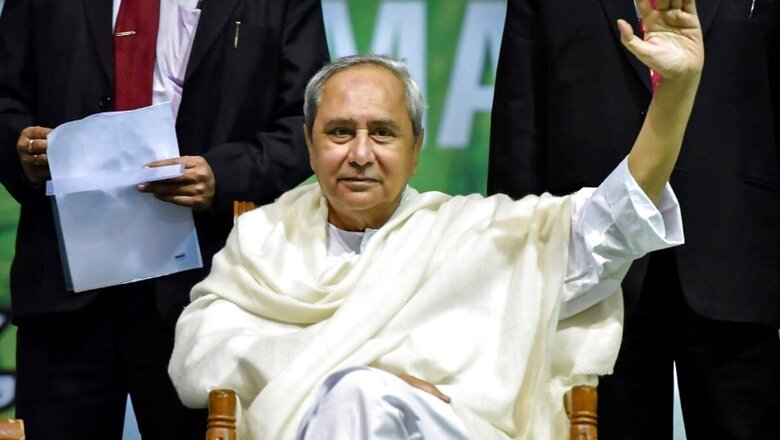
views
The Biju Janata Dal (BJD), led by Odisha Chief Minister Naveen Patnaik, took many by surprise when it opposed the two farm bills — the Farmers Produce Trade and Commerce (Promotion and Felicitation) Bill, 2020, and the Farmers’ (Empowerment and Protection) Agreement on Price Assurance and Farm Services Bill, 2020 — in the Upper House of Parliament.
Contrary to popular perceptions, the BJD had not supported the bills in their current form in the Lok Sabha either. BJD MP Anubhav Mohanty had asked for the two bills to be sent to a standing committee. However, in the Lok Sabha, where the party has 12 MPs, there was no voting on the contentious legislations. In the Rajya Sabha too, where the party has nine parliamentarians, there was no voting.
The BJD’s RS MP Sasmit Patra said his party is opposed to the farm bills in their current forms and wants them to be sent to the standing committee in the Lok Sabha and select committee in the Rajya Sabha for legislative scrutiny. “This is required to ensure poor and marginal farmers are adequately protected,” he said.
Only recently, the party had backed the BJP-led NDA candidate for the Rajya Sabha deputy chairman’s elections, but that was only after Bihar Chief Minister Nitish Kumar reached out to Patnaik twice. Earlier too, the BJD had supported several contentious legislations of Narendra Modi government like the Citizenship Amendment Act (CAA) and during revocation of Article 370 in Jammu and Kashmir.
Opposing certain provisions in the bills in the Upper House, party MP Amar Patnaik said, “What was required and long overdue was a revolution in the agricultural markets. So these two bills, which the government says will change the ecosystem of agricultural marketing, i.e., in the fields, are largely good on intent but completely or largely ignore the implementation aspects.”
Demanding that the bills be sent to a select committee, the MP touched on one of the sore points among farmers, the minimum support price (MSP). “We have a situation in which the small and marginal trader does not even have the opportunity to get an MSP. So is the bill only for big traders, a commerce and trade-oriented bill. Is it move meant towards dilution of the MSP? There is a huge miscommunication in the field, particularly in farmers in the procurement areas,” he said.
The BJD’s moves on bills in the two houses of Parliament have puzzled many. Insiders feel the party played on the ‘surprise’ element effectively and signalled that its support on crucial legislations cannot be taken for granted by the NDA.
A political analyst in Odisha said the BJD is opposed to certain sections in the bills and not the entire bills. “In the Lok Sabha, numbers favour BJP-led NDA overwhelmingly and therefore, the BJD’s opposition would neither have been visible nor impactful. This would not be the case in the Upper House and the BJD’s opposition would matter much more and could have also put the NDA in trouble (had there been a vote). The party played its cards well, while sending a signal to its core voter base – farmers,” said analyst Swadhin Satapathy.
Odisha being a primarily agrarian state, Patnaik has worked to keep farmers content. The state has a separate budget for agriculture. Wooing farmers and landless labourers was one of the key poll pitches of the BJP BJD in the 2019 elections.
In December 2018, the chief minister had announced the ‘Kalia’ scheme that entitled small and marginal farmers, tenant famers as well as landless agriculture labourer to cash benefits. Patnaik, who rarely steps out of the state, had then followed it up with a ‘kisan’ rally in the national capital in January, demanding among other things, implementation of the recommendations of the Swaminathan Commission in full measure, and increase in MSP for paddy from Rs 1,750 per quintal to Rs 2,390 per quintal.
Farmers’ protests in the western parts of the state is widely believed to be one of the reasons why the party could not fare well in the Lok Sabha elections and making way for the BJP.
Observers feel that while Patnaik’s support for the CAA or revocation of Article 370 in Kashmir would not impact voters directly in Odisha, support on the farm bill has the potential to seriously backfire. Agriculture and allied sectors contribute more than 21% to the net state domestic product, providing employment, directly and indirectly to more than 70% of the population.



















Comments
0 comment